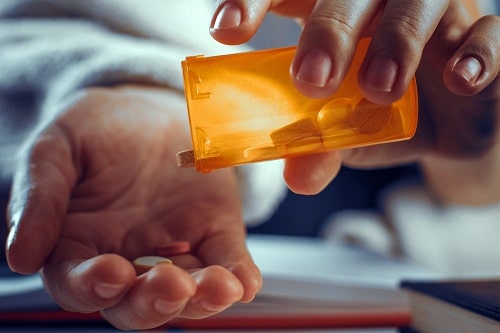Medicines, like everyday things, go bad after a set of periods. Past that date, drug manufacturers can’t guarantee their drugs’ effectiveness; perhaps it can even cause more harm than good. So, here’s a simple tip on dealing with expired meds: throw them in the trash.
For the record, whether food or drugs, expiration dates are rarely accurate. How long a consumable can remain good depends on too many factors, such as its ingredients and the storage environment. There’s no reliable way to tell the exact date, and there’s neither the time nor interest to come up with one. That’s why manufacturers settle for a conservative estimate based on current knowledge.
Nevertheless, playing Russian roulette with expired meds is practically playing the actual Russian roulette. The Food and Drug Administration (FDA), which has required expiration dates for drugs since 1979, recommends against taking them for the following reasons:
-
Reduced Efficacy
To understand why do drugs lose their efficacy over a period of time, you have to know how they operate. Drugs work by binding themselves to the cell receptors which send out signals to the rest of the cell body, which triggers the intended reaction. For example, ibuprofen reduces pain by blocking the production of prostaglandins, a hormone that triggers pain.
As less intimidating a reduced efficacy may sound, it sets a dangerous precedent. Antibiotics such as amoxicillin can lose their effectiveness after two weeks when dissolved in water (unless stored in the fridge). Taking an expired dose of amoxicillin won’t just be less effective but also give the nasty thing it’s supposed to kill an opportunity to develop immunity to it same is true with other medicines.
-
Drug Addiction
As expired meds are less effective, people tend to increase the dosage to get the desired effect of the meds. This is how the country’s opioid crisis begins, overprescribing and over usage of a drug will lead to developing addiction.
Drug addiction is already a grave problem even with a still-good medicine. The National Institute on Drug Abuse reports that over 70,000 Americans died from drug overdosage in 2019, 70% from opioids. A person who’s prone to abuse and is within reach of a cabinet full of expired and fresh drugs is a recipe for disaster which can kill or leave lives in ruins. Cleaning out the cabinet will be a great help.
In light of this, the Drug Enforcement Agency (DEA) holds its National Drug Takeback Day twice a year. Households can take steps on how to clean out their expired meds and dispose them at DEA’s collection sites. An event that doesn’t just give time for people to disposed medicines from their cabinet, but also a reminder for people responsibility when it comes to drugs. This year, the first of the two Takeback Days will happen on April 24 (subject to change depending on the COVID situation).
-
Legal Repercussions
Section 829 of Title 21 USC, also known as the Controlled Substances Act, which makes it illegal for a person to give their prescribed medication to another person. Leaving expired meds in the house is a great way to make it happen, even without the intention of giving them away.
Additionally, several states have their respective regulations regarding disposing of expired drugs.
-
Antibiotic Resistance
As mentioned earlier, antibiotics whose efficacy has waned over time can give the disease a chance to grow more resistant to it. Antibiotic resistance, as it’s called, has already been a critical problem before the pandemic. It kills twice as many people in the U.S. as drug overdosage and threatens to render every antibiotic in use to be ineffective.
Antibiotics are so potent that they should only be taken as prescribed by the doctor, from the dosage to the frequency of taking them. Once the time frame for the medication passes, only the doctor can determine if it stops there or continue with another batch.
-
Death
While there hasn’t been any recorded case of someone dying from taking expired meds directly, it can happen as an indirect result. Take epinephrine as an example, a drug which is commonly used to treat life-threatening allergic reactions or anaphylaxes, when it’s mistakenly used or administered, it can cause death.
Multiple studies have shown that anti-allergy meds that use epinephrine like EpiPen can lose most of their efficacy over time. An EpiPen past the date might not be able to deal with the allergy enough to avoid complications, if not death.
Conclusion
Once you’re done reading this article, go to your medicine cabinet and scrutinize every vial or box. The FDA has a four-step procedure you can take to dispose expired meds:
- Take the pills and liquids out of the container.
- Mix them in a bag with an unappealing substance like cat litter or coffee grounds.
- Throw the bag in the garbage or surrender them to a DEA-authorized collection site.
- Mark personal details out of the packaging with a pentel pen and dispose of them.
Throwing away expired medicine, especially if partly used, may seem like a waste. However, you can’t put a price on safety; keeping old pills and syrups around isn’t worth the savings.



















